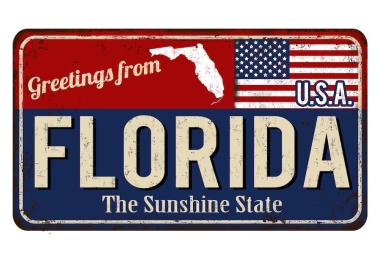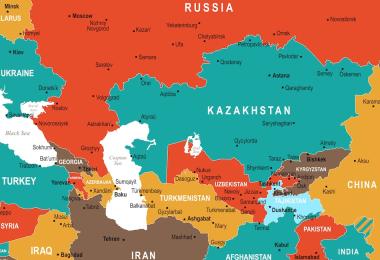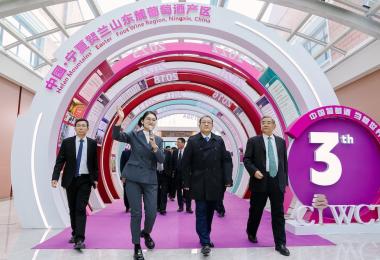When it comes to wine, Los Angeles is a city of contradictions. Even though as many as four of every five bottles are sold by a grocery chain or mega-retailer like Costco, it has some of the most important independent retailers in the US. Second, it remains a bastion of California wine, yet several local stores are among the key Bordeaux futures retailers in the country.
Finally, despite being home to Hollywood and the movie business, celebrity plays very little part in deciding what Los Angelenos drink. This is in marked contrast to the city’s restaurant scene, where celebrity allure often drives success. This means that deciding the city’s most important buyers, on and off premises, comes with all sorts of caveats.
“It is difficult to generalise about Los Angeles buyers,” says Chris Weed, a buyer for LA’s Spectrum Wine, a leading auction house and retailer. “But I might say that Los Angeles – not unlike California’s own wine-growing regions – comes to the wine community with an historical blank slate of sorts. Perhaps the same can be said of the current wine culture in Los Angeles.”
Wide area
Know two other things: first, the city’s physical area is immense – 809.5km2. Its size means that there are numerous neighbourhood and regional retailers, important in their part of southern California but not as important in the overall picture. “Each neighbourhood has its own constituency and its own style,” says Dan Fredman, a long-time Los Angeles marketer. “So it’s going to be different in Culver City than it would be in the San Fernando Valley.”
The Los Angeles area is big enough and wealthy enough to have some of the top natural wine retailers in the US, along with countless specialty grocers that try to be different in what they sell, and hundreds of chain grocery stores selling little more than Big Wine labels. Says Phillip Anderson, vice-president of sales for Mountain Peoples Wine Distributing, “There are lots and lots of high-end, cool places selling natural wine, but that also means there are a lot of places selling big boxes of blush wine.”
Left: Chris Weed, director of operations, LA’s Spectrum Wine Right: Phillip Anderson, vice president of sales, Mountain Peoples Wine and Beer
Some of the city’s most important buyers work for those national chains, but they may be faceless and nameless corporate types sitting in front of a keyboard and a couple of computer screens hundreds and hundreds of miles away. Since almost 80% of all the wine sold in southern California is sold in these national retailers, there is little style or panache involved in making buying decisions. The buyers are likely watching an algorithm recommend what to purchase for their LA-area locations, and many local buyers are allowed little leeway, buying what they’re told to buy.
“Some of those national accounts are key,” says one small Los Angeles area wholesaler, who asked not to be identified. “Because if you can get in one of them, you’ll sell all the wine you need to sell. The trick is getting into them, since they make it almost impossible to even know who to contact.”
On premises, meanwhile, is equally as contradictory, say those interviewed for this story. “There may be more restaurants, but it seems like the lists are getting smaller, and more of them are moving to wine by the glass to make up for the smaller lists,” says a family winery owner who sells in the LA market. “So it’s getting more and more difficult to sell on premises.”
The following list was compiled after talking to almost three dozen people in Southern California – writers, marketers, public relations professionals, winemakers, beverage managers and sommeliers, distributors and retailers. Most asked not to be named, given the nature of the article. I collated their suggestions, and ran that list past a half dozen people familiar with the Los Angeles market and how it works. I refined the list again using their suggestions – but the final list is mine.
The traditional retailers
The biggest chains move the most product, and those include supermarkets like the 200-plus location Ralphs, owned by Kroger; Albertsons and its subsidiary Vons and Pavilions chains (some 300 stores); and Stater Bros, with 172 stores. Most of their buyers have little authority to buy locally, and the consensus among those interviewed for this story is that they have “less authority all the time”.
A marketer who works for one of the biggest wine producers in the US identified only one chain, Albertsons, as being open to decisions that aren’t just price-driven. “They really don’t care what’s on the shelf as much as they care what the prices are, what promotions they can get, what the allowances are for coupons, displays and endcaps,” says the marketer.
Having said that, the most important local chain is almost certainly Costco and its 50 stores – just like Costco is in much of the rest of the US. Hence, LA-area buyer Tina Boyle carries tremendous clout. “It’s not easy to get in to her Costco stores,” says a California winemaker, “since she is particular about what appellations she buys. But if you do, then other retailers want your wine, too.”
The not-so-traditional retailers
Two less traditional chain retailers are well known in southern California – Trader Joe’s, which started there in 1967 and has 11 locations, and Whole Foods, the national grocer, also with 11 stores. Trader Joe’s buyer Chris Condit focuses on private label, and the winemaker says it’s difficult to get on its shelves unless you’re willing to work with them on store brands.
Whole Foods divides opinion among the wine trade like no other. On the one hand, its upscale demographics make it more than desirable: who wouldn’t want to be in the Whole Foods in Beverly Hills? On the other hand, its efforts to carry more than national brands are met with scepticism. “Whole Foods? I suppose you can say they try,” said one independent retailer, while a sales rep for a leading European importer was more dismissive: “It’s just a grocery store,” the rep said.
In addition, even though Whole Foods lists a buyer for southern California, Claude Ruau-Choate, many in the wine trade are convinced that most decisions go through Whole Foods’ Austin, Texas, national headquarters and national wine gurus Devon Broglie and Doug Bell.
Gelson’s, with 28 stores in southern California, gets high marks for high-end products and innovation. One example: adding wine bars to most of its locations. The wine buying process seems to end with Tom Frattali, the senior vice-president for grocery purchasing, merchandising and distribution.
The traditional wine shops
Talk Los Angeles wine shops, and two come first to mind – Wally’s Wine & Spirits, with stores (and restaurants) in Beverly Hills and Santa Monica, and Wine House in west Los Angeles. Each has been a mainstay for decades, Wally’s for more than 50 years and Wine House for 40. Each sells Bordeaux futures, focuses on customer service for its often high-end clientele, and ships wine throughout the US where it’s legal.
Buying at Wally’s is split between several people, including Christian Navarro, the company’s president; J.P. Blanchard, who handles Burgundy; and wine director Matt Turner. At Wine House, most buying is done by the owners, Bill, Jim and Glen Knight.
Also worth noting is K&L Wine Merchants, the Hollywood outpost of the renowned San Francisco-area retailer whose head buyer is Trey Beffa. Hi-Time Wine Cellars, in Orange County, has been offering similar services since 1957; most of the buying is done by the owners, the Hanson family.
The not-so-traditional wine shops
Where else but Los Angeles would a local food website include three shops featuring among a list of the 20 best wine bars? Among those less traditional, but still well regarded retailers are Silverlake Wine, with three locations, run by George Cossette, Randy Clement and April Langford, and specialising in organic and biodynamic; a new retailer, Stanley’s Wet Goods in Culver City, owned by John Stanley, which tries to be as funky as its surroundings; and Lou Wine Shop, owned by Lou Amdur, which specialises in natural and unusual wines.
On-premises buyers
Much of the Los Angeles restaurant wine business is sommelier-driven, say several importers and distributors. Having said that, it’s impossible to overlook Wolfgang Puck’s international restaurant chain, which operates eight restaurants in the Los Angeles area. The most important is the flagship Spago in Beverly Hills, where Phillip Dunn, MS, oversees one of the world’s great wine lists.
Max Stefanelli, who runs the wine program for the two Terroni restaurants in Los Angeles, is one of the keepers of the Italian flame after Piero Selvaggio’s legendary Valentina closed at the end of 2018. Ryan Ibsen, a Food & Wine magazine 2018 sommelier of the year, gets recognition for the wine program at Bestia. Sarah Clarke is the beverage director for Mozza Restaurant Group, with four LA restaurants.
In all, whether on or off premises, these are mostly wine buyers who are uniquely of the town where they work. But what else would you expect from Los Angeles?
Jeff Siegel








